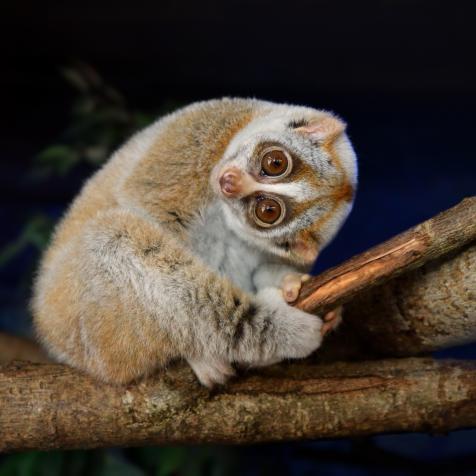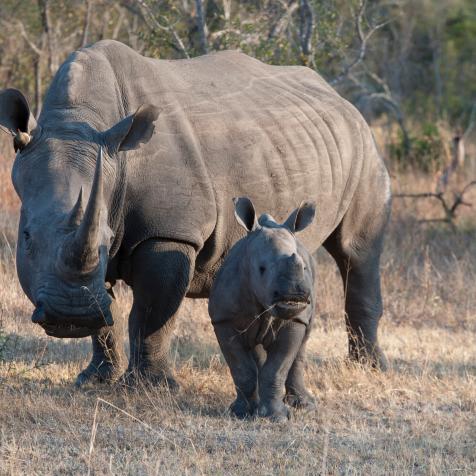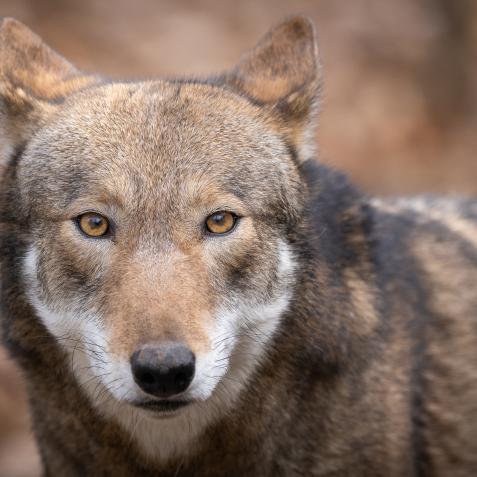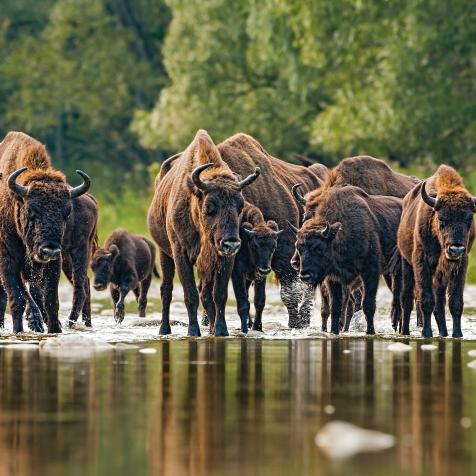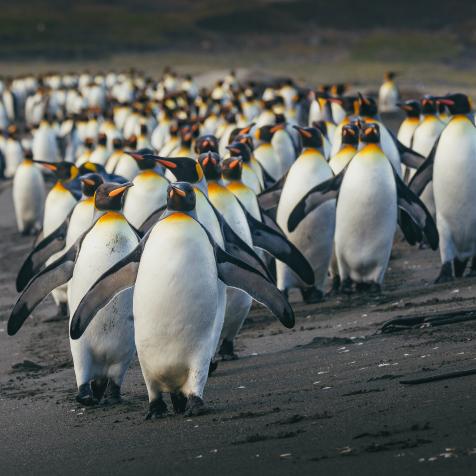
Leon Neal
Wildlife Protection Dogs: Scent of Opportunity for Canines as Animal Guardians
In the animal kingdom there are few senses as acute as the canine sense of smell.
Trained domestic dogs can detect scents in tiny quantities, giving them the ability to sniff out explosives, narcotics, even diseases like diabetes and cancer. But it is their role in wildlife protection that makes them remarkable guardians of the natural world.
There are 300 million scent receptors in a dog’s nose compared to our five million and their sense of smell is estimated to be on average between 100,000 and one million times more sensitive. This advantage together with targeted training allows dogs to identify distinct odors linked to endangered species and poaching.
Animals Protecting Animals

PHILIPPE LOPEZ
African rangers use dog teams as part of the escalating fight against sophisticated and organized efforts to trade in illegal wildlife products that include rhinoceros horn, pangolin scales and elephant tusks. Mobile teams operate in vast national parks and protected areas using aerial surveillance, camera traps, and networks of informants, but trained dogs are a vital resource.
White and black rhino numbers have recovered in eastern and southern Africa in the past decade to around 20,000 and 5,000 respectively, but still animals are lost every day to poachers. Typical days for ranger dog units involve sniffing out evidence, weapons caches, and tracking criminals.
Malawi’s first wildlife detection dog unit was set up in 2018 at Lilongwe Airport after a report revealed the country was a hub for the illegal wildlife trade. The unit’s success has included jailing high-ranking members of an international syndicate shipping product to China and Vietnam.
Non-profit organizations like the African Wildlife Foundation or Animals Saving Animals (ASA) operate units in multiple countries. Their dogs work in both rural and urban environments and have uncovered millions of dollars worth of ivory, bushmeat, and rhino horn at air and seaports.
Springer spaniel Drum is a recent recruit to ASA’s ranks. His primary job is to search vehicles to stop poachers smuggling arms and ammunition onto the Ol Pejeta Conservancy in Kenya.
"Although dogs are not a silver bullet in the fight against poaching they are a huge security force multiplier,” said ASA founder Daryll Pleasants. One dog can secure the same area as seven rangers. Their detection skills can indicate poachers more than half a mile away in favorable conditions and they offer units the ability to track at night.
But animal protection doesn’t begin and end with stopping poachers. Conservation is another area where dogs excel. Canine noses are able to help locate live animals for ecological surveys and monitoring programs, by finding animal scat – poop to you and me.
Dogs provide vital support in finding rare or threatened wildlife – from koala and quoll in the Australian bush, to pine marten and crested newt in Britain’s countryside.
One of the world’s leading conservation detection dog trainers is the non-profit Working Dogs for Conservation. Co-founder Megan Parker was born in Missoula, Montana and has trained dogs for years to find scat, as one of the least invasive ways to find out where endangered species live and their numbers.
Follow the Scent

Gallo Images
Scent detection has so far helped find populations of orcas in the north eastern pacific and the world’s rarest gorilla – the Cross River gorilla – in the highland forests of Nigeria and Cameroon.
And now greater integration using the dog’s strengths in location, added to genetic analysis and population modeling is helping conservationists manage habitat for black and grizzly bears in the US Rockies and Yellowstone.
Conservation and protection using the dog’s incredible scent abilities to preserve other species could be classified as nature helping nature, but it is a solid bet that these specialized wildlife canine units are here to stay.









